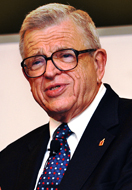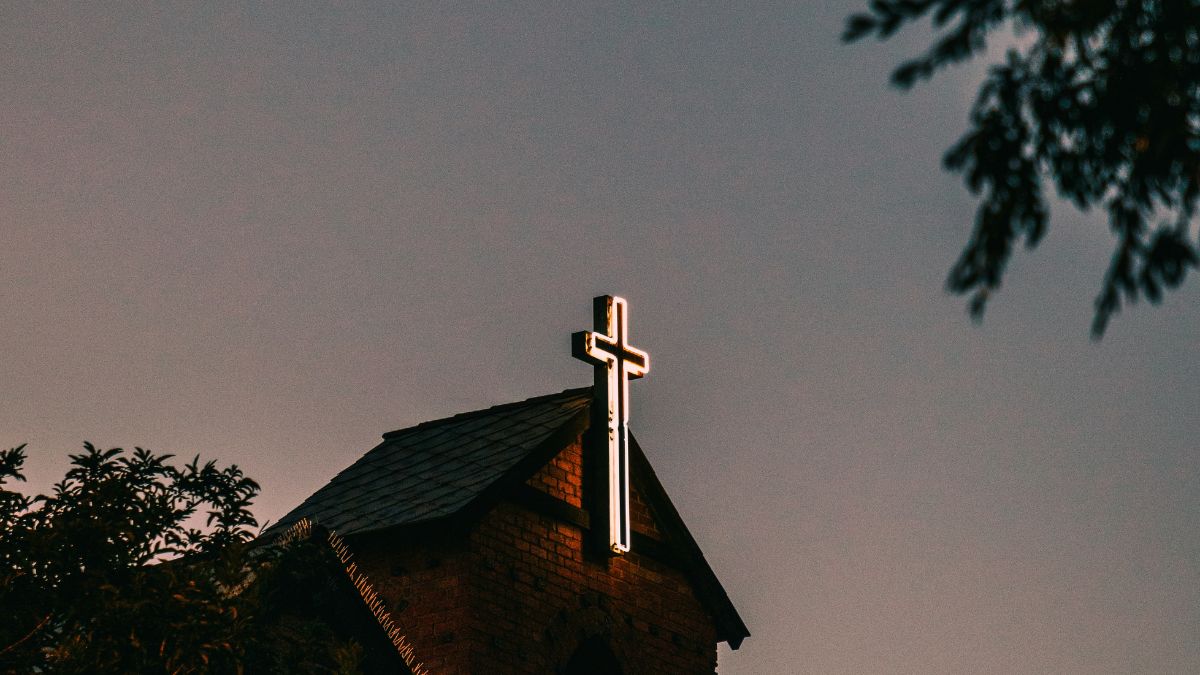

BreakPoint
The Houston park was once an inviting place for children to play. But tots on trikes were replaced by drug dealers who turned it into a “needle park”—one littered with hypodermic syringes.
BreakPoint: Volunteer Power
The Houston park was once an inviting place for children to play. But tots on trikes were replaced by drug dealers who turned it into a “needle park”—one littered with hypodermic syringes.
 But then a citizen group called the Little League Squad arrived on the scene—and they showed how volunteer associations can transform a neighborhood.
The Little League Squad was made up of volunteer cops, trained by Houston law enforcement officers. These volunteers ran the drug dealers out of the park and cleaned it up. Then they invited neighborhood kids to form Little League teams.
Churches, businessmen, and civic groups helped pay for bats and uniforms. Little League Squad members volunteered as coaches and patrolled the park for drug and alcohol use.
Before long, enough kids had signed up to form several Little League teams—the neighborhood’s first in 25 years.
The transformation of a “needle park” into a ball park demonstrates how volunteer groups can impact a neighborhood’s quality of life. That’s a concept French statesman Alexis de Tocqueville understood. One hundred fifty years ago, Tocqueville wrote that America’s greatest strength was her voluntary associations.
And until a couple of decades ago, it was volunteers who took care of neighborhood dilemmas. Whether it was rowdy boys, abandoned children, a teenage girl in trouble—these problems were dealt with by churches and civic groups before they became matters for police or political platforms.
But many of the old voluntary associations have gone the way of poodle skirts and Packards—and the sobering consequences now litter our streets. Instead of trying to solve neighborhood problems, citizens now peer nervously at them from behind barred windows.
What’s behind this rapid decline in a sense of community? Part of the problem is that people today are more transient and put down shallower roots. But much of the problem lies with government programs that have elbowed out local private and religious charities.
But far-off bureaucrats can’t compare with volunteers who live in the midst of community chaos—as Houstonites have discovered. In Houston’s tough Precinct Six, where the Little League Squad was formed, some 200 volunteer cops patrol the streets. A Graffiti Squad prevents vandalism. A Church Patrol stops criminals from robbing cars while their owners are worshipping.
The result? Homicides are down by nearly 50 percent. Robberies have dropped by 34 percent. Auto thefts are down 48 percent.
The success of voluntary groups over government programs really shouldn’t surprise Christians. Seven centuries ago, Thomas Aquinas taught that the state has a limited positive role in promoting the common good. Aquinus warned that the state must recognize and uphold the rights of the family and intermediate institutions such as the church, school, and voluntary associations.
In other words, local problems should be solved by local people, because they’re most competent to handle them, as Houston’s volunteer cops have recently demonstrated.
Promoting voluntary associations is one of the goals of Senator Dan Coats’ Project For American Renewal. It’s a project I hope you’ll support.
It will help neighborhood groups like Houston’s Little League Squad—and teach citizens how to rebuild civil society, one block at a time
But then a citizen group called the Little League Squad arrived on the scene—and they showed how volunteer associations can transform a neighborhood.
The Little League Squad was made up of volunteer cops, trained by Houston law enforcement officers. These volunteers ran the drug dealers out of the park and cleaned it up. Then they invited neighborhood kids to form Little League teams.
Churches, businessmen, and civic groups helped pay for bats and uniforms. Little League Squad members volunteered as coaches and patrolled the park for drug and alcohol use.
Before long, enough kids had signed up to form several Little League teams—the neighborhood’s first in 25 years.
The transformation of a “needle park” into a ball park demonstrates how volunteer groups can impact a neighborhood’s quality of life. That’s a concept French statesman Alexis de Tocqueville understood. One hundred fifty years ago, Tocqueville wrote that America’s greatest strength was her voluntary associations.
And until a couple of decades ago, it was volunteers who took care of neighborhood dilemmas. Whether it was rowdy boys, abandoned children, a teenage girl in trouble—these problems were dealt with by churches and civic groups before they became matters for police or political platforms.
But many of the old voluntary associations have gone the way of poodle skirts and Packards—and the sobering consequences now litter our streets. Instead of trying to solve neighborhood problems, citizens now peer nervously at them from behind barred windows.
What’s behind this rapid decline in a sense of community? Part of the problem is that people today are more transient and put down shallower roots. But much of the problem lies with government programs that have elbowed out local private and religious charities.
But far-off bureaucrats can’t compare with volunteers who live in the midst of community chaos—as Houstonites have discovered. In Houston’s tough Precinct Six, where the Little League Squad was formed, some 200 volunteer cops patrol the streets. A Graffiti Squad prevents vandalism. A Church Patrol stops criminals from robbing cars while their owners are worshipping.
The result? Homicides are down by nearly 50 percent. Robberies have dropped by 34 percent. Auto thefts are down 48 percent.
The success of voluntary groups over government programs really shouldn’t surprise Christians. Seven centuries ago, Thomas Aquinas taught that the state has a limited positive role in promoting the common good. Aquinus warned that the state must recognize and uphold the rights of the family and intermediate institutions such as the church, school, and voluntary associations.
In other words, local problems should be solved by local people, because they’re most competent to handle them, as Houston’s volunteer cops have recently demonstrated.
Promoting voluntary associations is one of the goals of Senator Dan Coats’ Project For American Renewal. It’s a project I hope you’ll support.
It will help neighborhood groups like Houston’s Little League Squad—and teach citizens how to rebuild civil society, one block at a time
04/20/09
Topics
Christian Living
church issues
Colson_Links
Crime & Justice
Culture/Institutions
Relationships
Religion & Society
Sports















